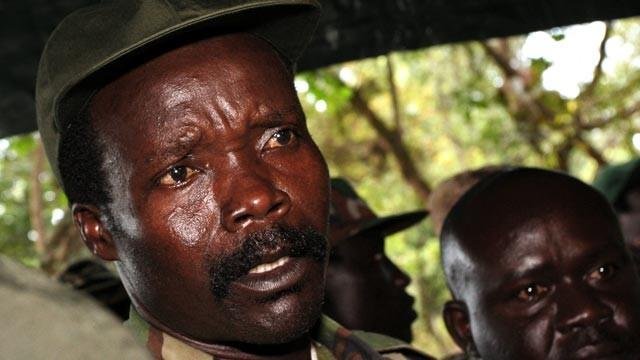1 of 4 | LRA leader Joseph Kony.
A new State Department policy opened the door for the U.S. to place a $5 million bounty on Joseph Kony, the Lord's Resistance Army leader accused of conscripting child soldiers, and his two top deputies.
In a statement Wednesday, Secretary of State John Kerry and Ambassador-at-Large for War Crimes Issues Stephen Rapp announced the expansion of the War Crimes Rewards Program, which authorizes the State Department to offer rewards for information leading to the arrest or conviction of foreign nationals accused of war crimes, crimes against humanity or genocide.
"To be clear, this is not a dead-or-alive bounty program," Kerry said. "Information must lead to the secure arrest, transfer, or conviction of these people men in a court of law."
"We want these men to look into the eyes of their victims and answer for their actions."
Kerry touted the War Crimes Rewards Program list as a primary reason why Congolese rebel Bosco Ntaganda voluntarily turned himself into the American embassy in Rwanda last month, shortly after he was added to that list.
"I would have been announcing a reward for him today, but instead, he is sitting in a cell at The Hague," Kerry said. "He realized it was better to face justice under the law than live on the run as a wanted man any longer."
In addition to Kony, new designees announced Wednesday include top LRA deputies Okot Odhiambo and Dominic Ongwen, as well as the leader of the Democratic Forces for the Liberation of Rwanda, known as the FDLR, Sylvestre Mudacumura. All four men were indicted by the International Criminal Court in the Hague.
Nine others indicted by the International Criminal Tribunal for Rwanda remain on the list.
“We act so that there can be justice for the innocent men, women, and children who have been subjected to mass murder, rape, amputation, enslavement, and other atrocities," said Rapp.
"With this program we also send a message to others who may perpetrate such crimes: ‘there will be the means to bring you to account.’”
Under the previous version of the WCRP, such bounties were limited to people indicted by specific tribunals: the Special Court for Sierra Leone, the International Criminal Tribunal for the Former Yugoslavia, and the International Criminal Tribunal for Rwanda. The new law, signed by President Obama on January 15, allows rewards for those indicted by any international criminal tribunal.
The United States has a working relationship with the International Criminal Court, but is not an official participant. In 2000, President Clinton signed the Rome Statute, which formed the court, but did not submit it for Senate ratification. President Bush formally withdrew the United States' intent of ratification, but Obama reestablished cooperation when he took office.







